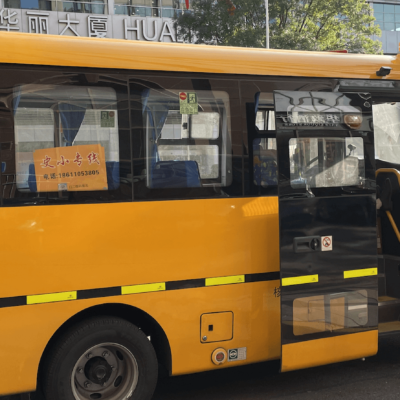The Taliban have taken control in Afghanistan. In doing so, they have achieved two of their three main goals, namely the removal of foreign troops and the revival of an Islamic Emirate.
Their third goal — formal international recognition and widespread legitimacy for that Emirate — remains elusive.
Will the international community extend formal diplomatic recognition to a new Islamic Emirate in Afghanistan?
Liberal states are likely to demure, citing human-rights abuses. But in neighbouring states, including Pakistan, its close ally China, and the states of Central Asia, the question will be more complicated.
Turning away from human rights, these states will stress a rudimentary understanding of domestic and regional security: will the Taliban provide enough security to allow lucrative forms of investment from China?
If the answer is ‘no’, because China sees a rapid Taliban takeover pivoting towards a protracted civil war, neighbouring states may attempt to trim the Taliban’s sails by refusing formal diplomatic recognition. But, if the answer is ‘yes’, that old canard — that trade alone fosters peace — will prompt wider forms of recognition.
The international community will split between liberal and illiberal/neighbouring states. But a third group — namely, non-neighbouring Muslim-majority states — is also important.
It is not a foregone conclusion that non-neighbouring Muslim-majority states will rush to welcome a Taliban Emirate.
After the Taliban defeated a fractious government of anti-Soviet mujahideen and ruled Afghanistan between 1996 and 2001, only three states – Pakistan, Saudi Arabia, and the United Arab Emirates – opted to recognise it.
And, since 2001, both Saudi Arabia and the UAE have grown increasingly concerned about the risks associated with Muslim insurgents. This is unsurprising. Muslim-majority states around the world have suffered greatly at the hands of such insurgents.
Muslim-majority states are diverse: politically, ethnically, culturally and doctrinally. Some have seen a rise of Islamist political parties in recent years (Turkey); others have sought to destroy those parties (Egypt; Bangladesh). But Islamist parties rooted in modern universities must be sharply distinguished from traditional madrasa-based elites. In fact, even where madrasa-based elites are politically active, they often compete with one another: Sunni versus Shi’i, Sufi versus Salafi; and so on. The emergence of an ‘Islamic Emirate’ led by the Taliban will provide an enormous fillip to (one side of) numerous intra-Muslim debates.
Even in Sunni-majority states, security-conscious elites will be worried on at least two levels: an informal level tied to grassroots religious debates and a formal level tied to overarching constitutional debates.
At a grassroots level, Sunni Muslims typically recognise four ‘schools’ of Islamic jurisprudence, namely the Sunni Hanafi, Shafi’i, Maliki, and Hanbali schools. One of these schools may be prevalent in a particular area but, even then, all four are considered legitimate.
The Taliban, however, have repeatedly insisted that, even apart from their history of conflict with Shi’i Muslims, they will recognise only one school of Sunni jurisprudence.
In fact, even within their own ‘Hanafi’ school, they stress a Hanafi ‘Deobandi’ approach that abjures any appreciation for popular patterns of Muslim spirituality focused on the Sufi saints buried in Sufi shrines.
Intra-Muslim debates often focus on these shrines: again, security specialists in states with shrines will be nervous.
On a constitutional level, most Muslim-majority states leave room for intra-Muslim diversity.
The Constitution of Iran, for instance, privileges one approach to Shi’i law (the Jafari school); but, at the same time, it notes that ‘the Hanafi, Shafi’i, Maliki, Hanbali, and Zaydi’ schools are ‘to be accorded full respect’ and ‘official status’ (Article 12).
Pakistan is less explicit. Seeking to avoid a situation in which competing groups might fall on one another in a sectarian or doctrinal civil war, the Constitution of Pakistan refuses to name any school at all.
These debates remind us that the Taliban are exceptionally intolerant. Again, other Muslim-majority states should be worried.
For Muslim-majority states, recognising a Taliban government secured through military victory is not a strictly ‘external’ matter. As an act that could embolden like-minded groups at home, recognition is an ‘internal’ matter. Security-minded Muslim states should be cautious.
Having taken Kabul the next phase of the Taliban’s campaign will focus on its quest for international legitimacy. Liberal non-recognition will raise concerns if it means a loss of basic humanitarian aid. The Red Cross will carry on regardless.
Illiberal/neighbouring non-recognition will raise concerns if it means a loss of investment and, here, states like China hold all the cards.
But again, non-recognition by religious elites in non-neighbouring Muslim-majority states still matters.
Within those states, security-conscious elites will scramble to ensure that madrasa-based celebrations focused on the Taliban’s recent victory are muted. They know that, if those celebrations are large, the waves of insurgent inspiration rolling out of Afghanistan will quickly erode their own shores.
This realisation is important. Security-conscious Muslim-majority states should pause before they reward the Taliban’s military victory with a final victory in its quest for diplomatic recognition.
This article was originally published by Pursuit.
Image: A U.S. Chinook military helicopter flies above the US embassy in Kabul on August 15, 2021. Image credit: Wakil Kohsar/AFP via Getty Images.




